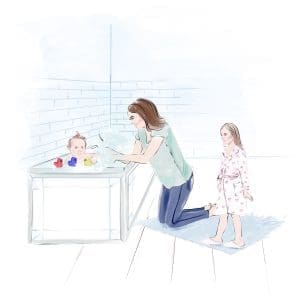Paediatric First Aid for Nannies
 When applying to the Agency, you will be asked to provide proof of an original up-to-date Paediatric First Aid Certificate. If you don’t currently hold an up-to-date qualification, you will be required to take the course in order to be placed with one of our Clients. Valid for 3 years, this qualification meets the Ofsted Early Years.
When applying to the Agency, you will be asked to provide proof of an original up-to-date Paediatric First Aid Certificate. If you don’t currently hold an up-to-date qualification, you will be required to take the course in order to be placed with one of our Clients. Valid for 3 years, this qualification meets the Ofsted Early Years.
Foundation Stage (EYFS) and Childcare Register requirements for paediatric first aid training.
Taught in a classroom setting, the course offers a practical, hands-on approach that delivers the training and confidence to use first aid skills in a real-life situation. For added reassurance, you will be assessed throughout the course using a range of practical demonstrations, question and answer sessions, quizzes and engaging activities designed to coach and support them.
You will also learn basic adult first aid skills, from how to note details of an accident to how to administer medication. All good stuff.
Where can you take the first aid course?
We can highly recommend either St John Ambulance or the British Red Cross. Both run a 2-day course held over 2 consecutive days, however, the British Red Cross also run the 2-day course over 2 weeks. Conveniently, both have venues throughout the UK and, as its a full day, do take a packed lunch in case the venue doesn’t have a cafeteria.
What Paediatric First Aid Nanny can do
Once qualified, you will understand the role and responsibilities of the paediatric first aider and be able to assess an emergency situation safely, you will also be able to:
Provide first aid for an infant and a child:
- who is unresponsive and breathing normally, including child and infant resuscitation
- who is unresponsive and not breathing normally
- who has a foreign body airway obstruction
- with external bleeding
- with injuries to bones, joints and muscles (including spinal injuries)
Understand how to administer emergency first aid to an infant and a child with a chronic medical condition or sudden illness including:
- sickle cell crisis
- diabetic emergencies
- asthma attack
- allergic reaction including anaphylactic shock
- meningitis
- febrile convulsions
- seizures
- has sickness or fever
Understand how to administer first aid to an infant and a child:
- who is experiencing the effects of extreme heat and cold
- who has sustained an electric shock
- with burns or scalds
- who has been poisoned
- who has been bitten or stung
- with minor injuries, including cuts, grazes, bumps and bruises, small splinters and nose bleeds
- with conditions affecting the eyes, ears and nose
- with head and spinal injuries
- with anaphylaxis
- who is suffering from shock
You will also understand how to complete records relating to illnesses, injuries and emergencies.